And did you get what
you wanted from this life, even so?
I did.
And what did you want?
To call myself beloved, to feel myself
beloved on the earth
(Raymond Carter, “Late Fragment,” from A New Path to the Waterfall, 1989).
Karl finally CALLS HIMSELF “Beloved”
Karl’s self-esteem took a terrible battering in childhood and, at some level, he never recovered. Adults repeatedly abandoned young Karl. He could not forgive himself, partly because, deep down, he felt he merited the cruel treatment he received from insensitive and desperate adults within his family and within institutions. Apparently, that’s not that uncommon with men who have been abused in childhood.
But six months after his death, Karl is reflecting on the love he received in his life:
Look at all we’ve been saying in this notebook — for six months! So much love and caring. And so much hope and respect. I am so glad you decided to do this. It helps me enormously to feel sure that I am lovable and loved. I didn’t know that exactly — until I attended my own funeral. Then I saw it — and heard it….
In November 2016, Karl comments again on his memorial service:
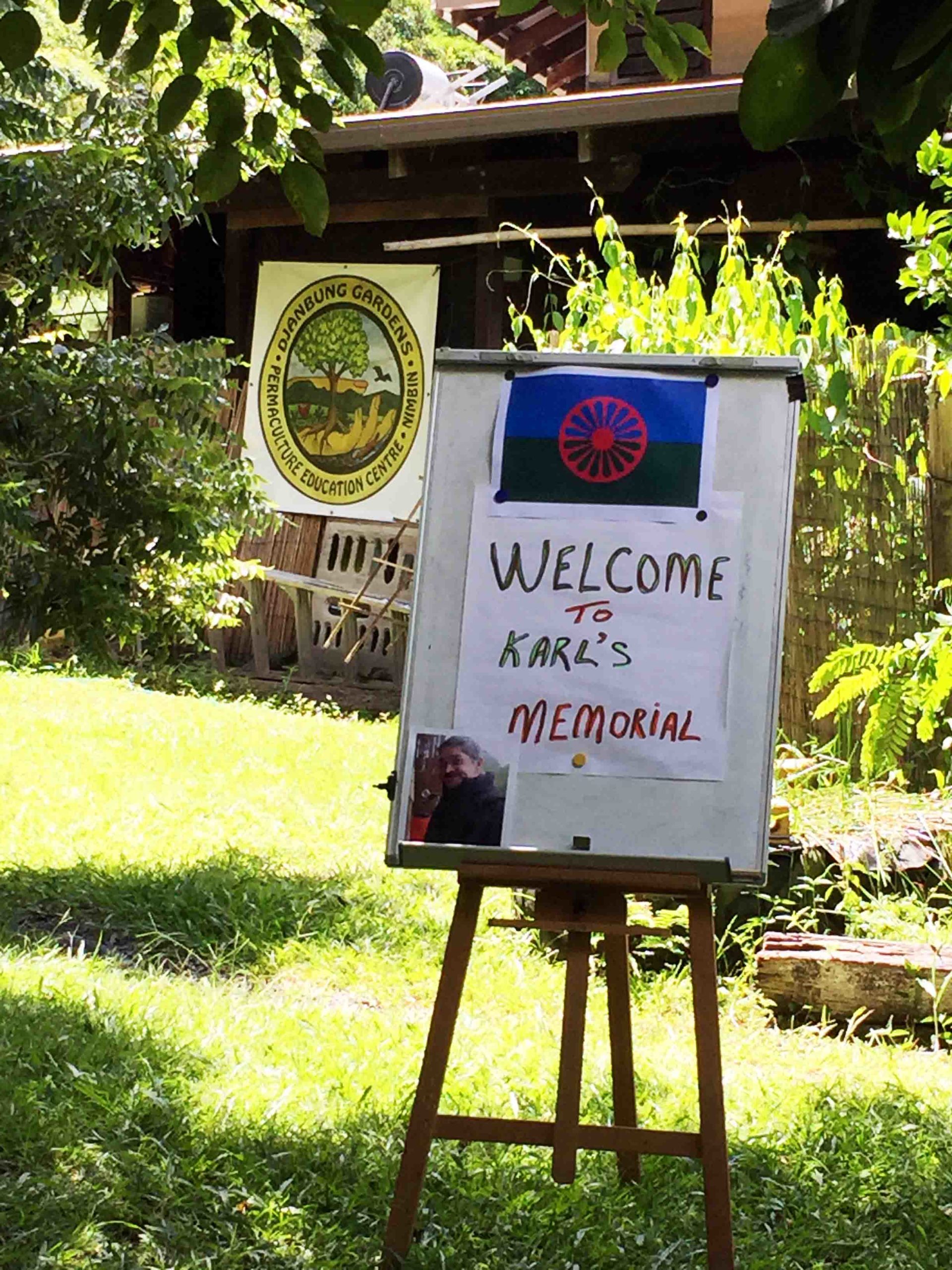
I was touched that everyone was remembering me! I do want to be remembered in your hearts for trying to be a good man. I loved my life. I loved Nimbin. I loved all of it. My whole life was a great gift from God – all of it. And finding you was so excellent. You helped me to be a good man.
And remember him, they did.
Being in an alternative community, I was able to make the memorial as “alternative” as I wanted (and as I knew Karl would like). Here are some views of the room at the Permaculture Centre and so views outside.

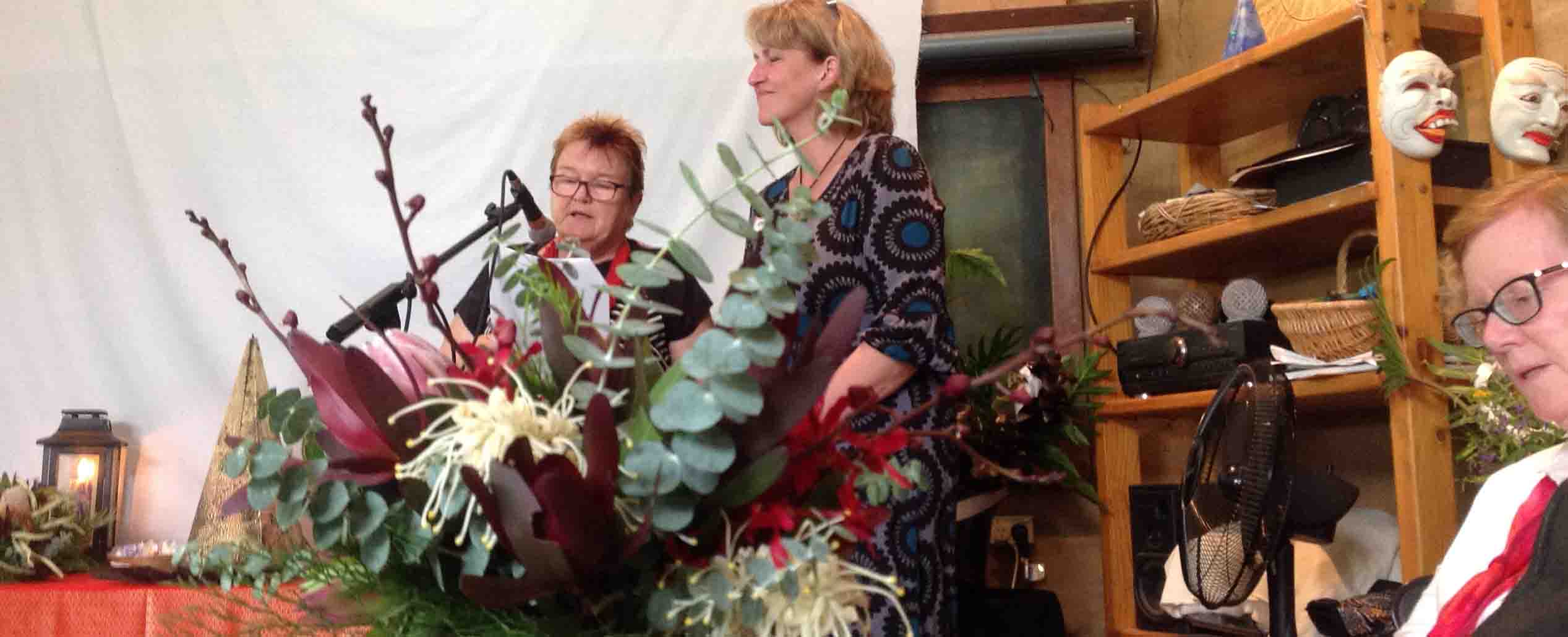


We hung the banner of Karl’s life outside the room where the memorial was held. It was mid-summer, and everyone was moving from the indoors to the outdoors and back again.
Mourners were also invited to place annotated post-it notes on the banner and on a Wall of Love beside it.
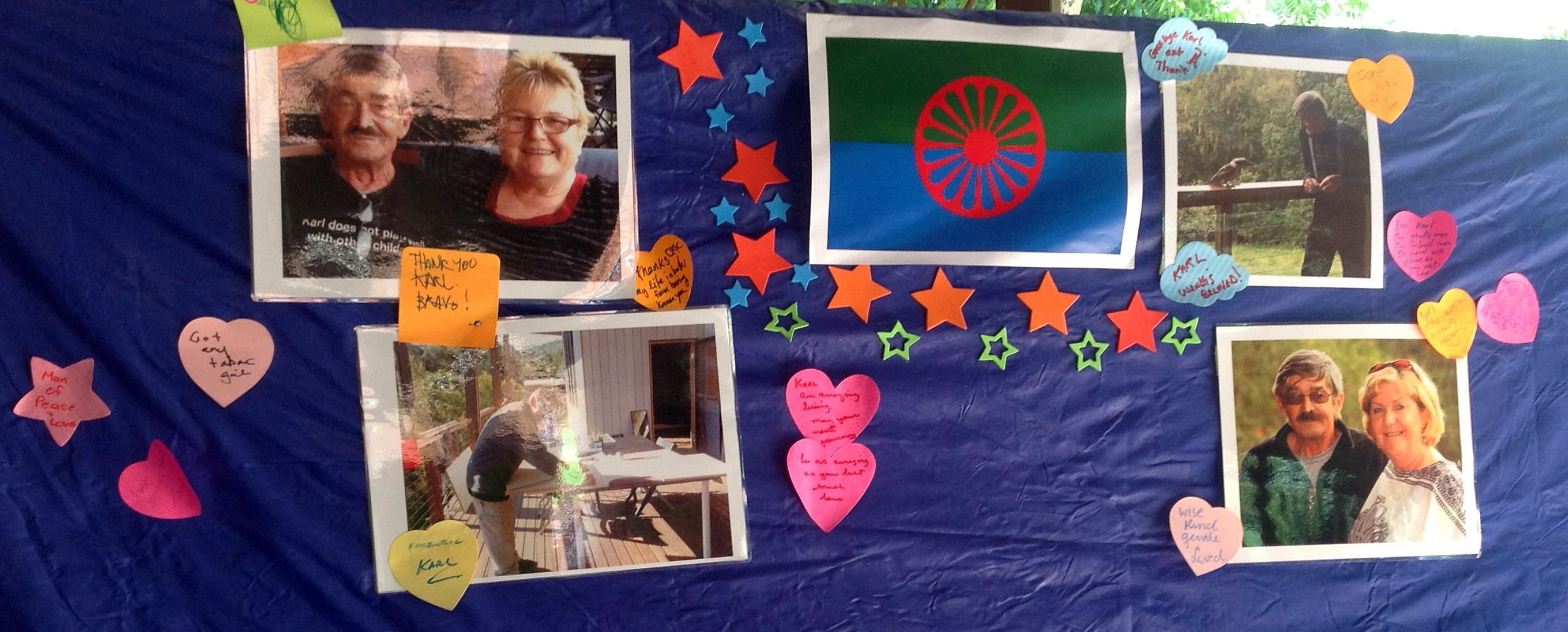
One young boy attending Karl’s memorial, having heard in my eulogy that Karl wanted Nimbin worms to inhabit his body, drew this:
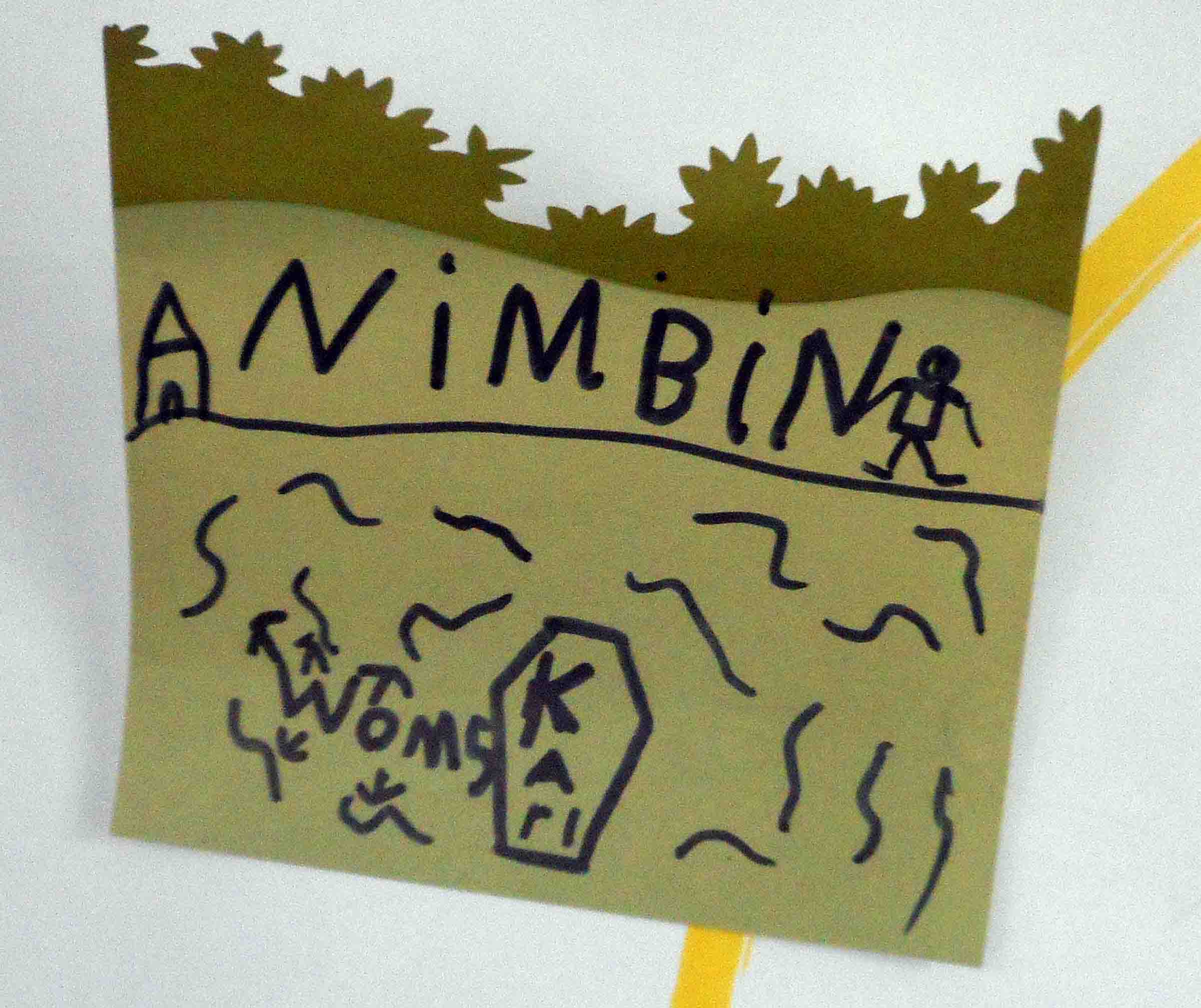
My note reminded him of how much I loved him:
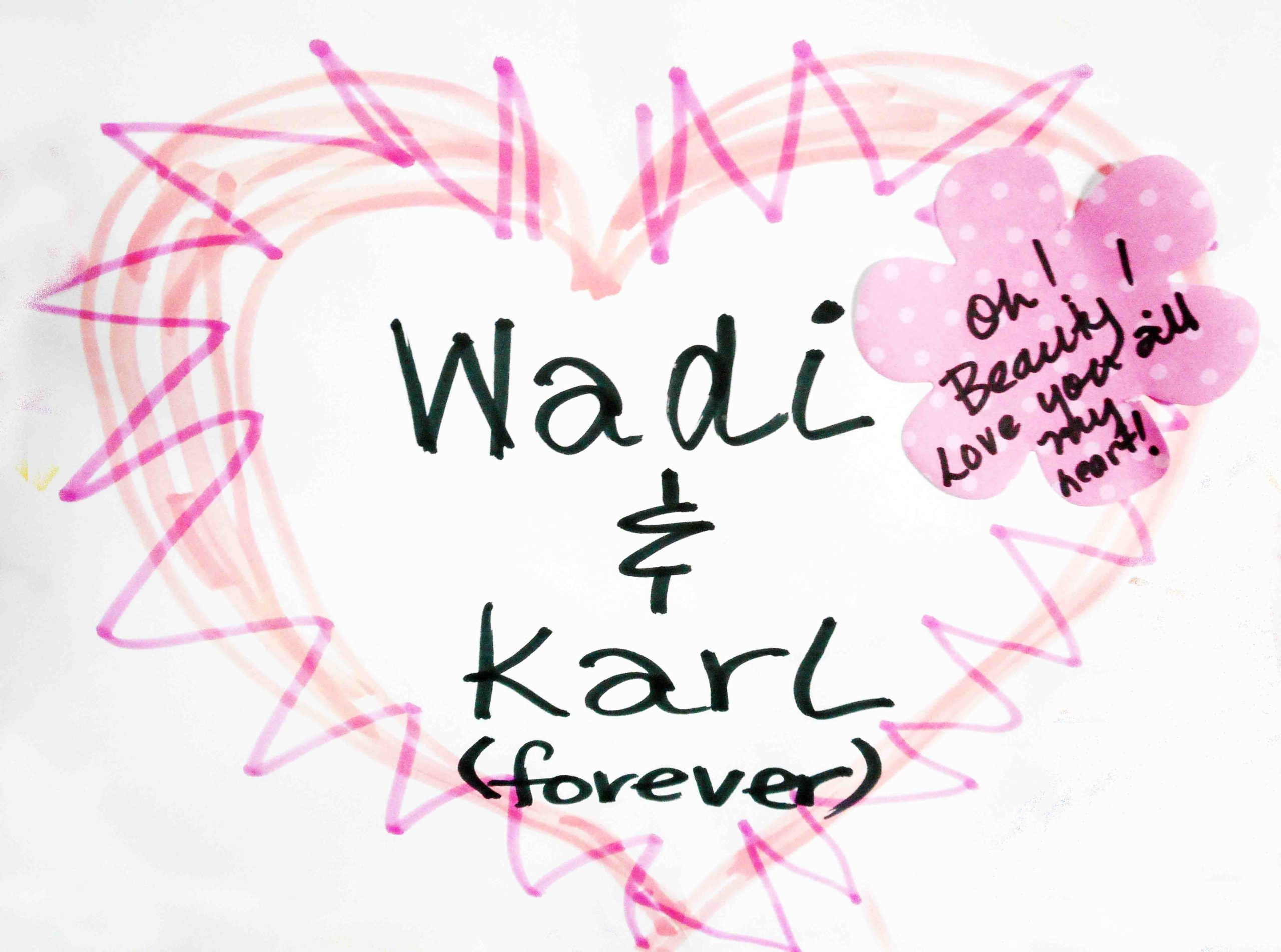
Karl’s manager at the Nimbin Neighbourhood Information and Community Centre, Natalie, had this to say:
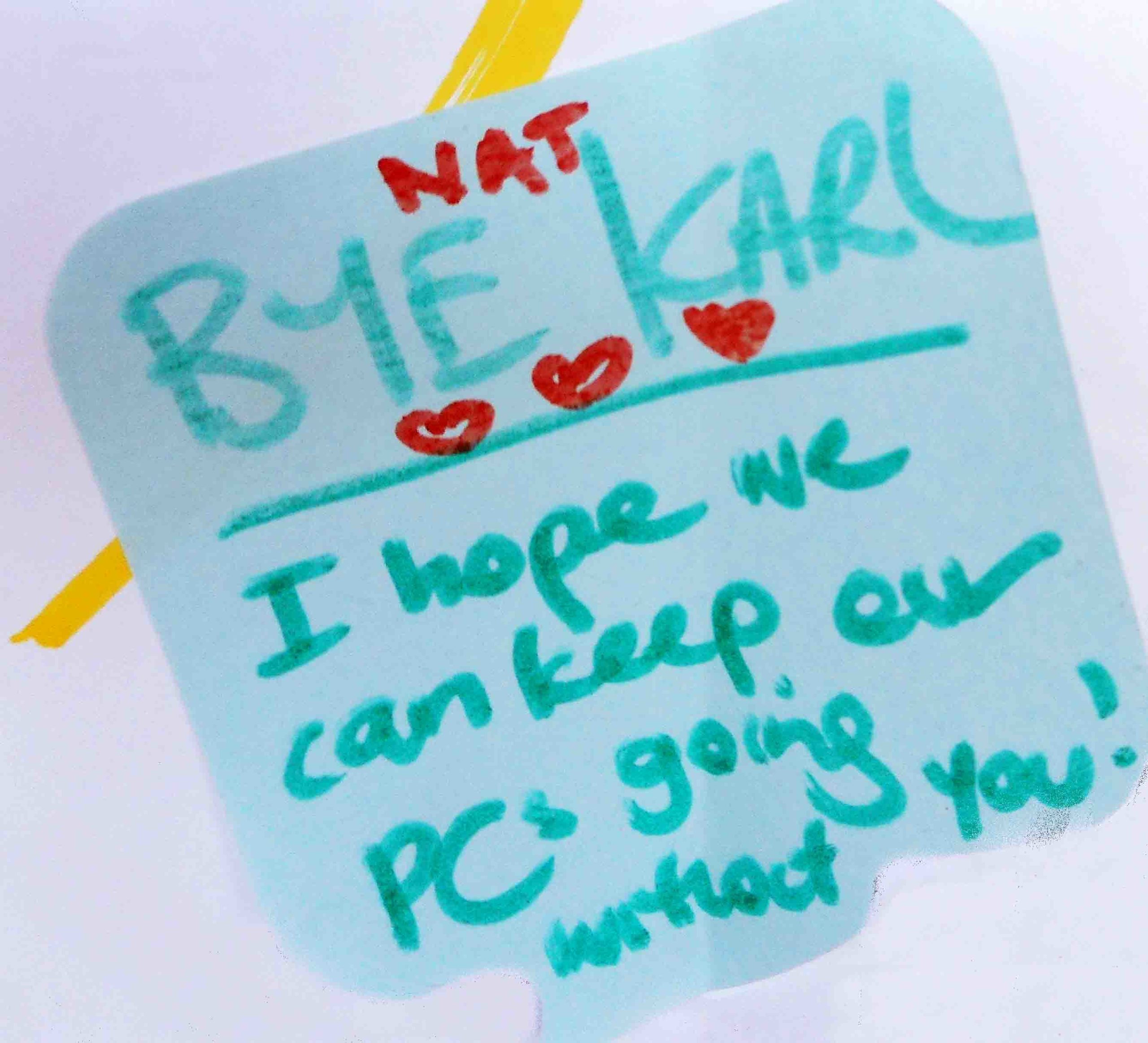
Karl’s son left the very first note on the banner of Karl’s life, saying simply, “Loved you, Dad. xxx.”
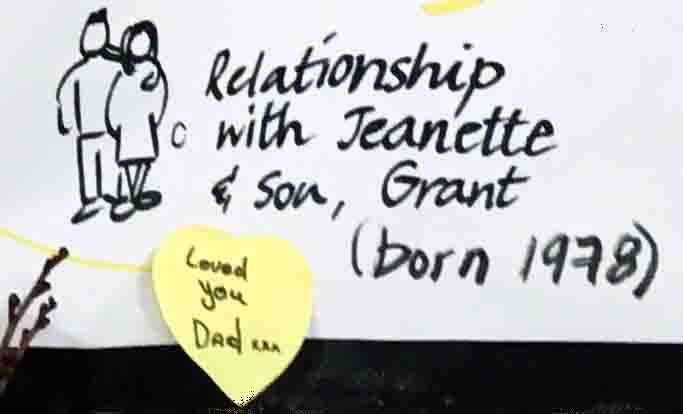
After a few minutes of the community mourners’ annotations, our banner of Karl’s life looked like this:
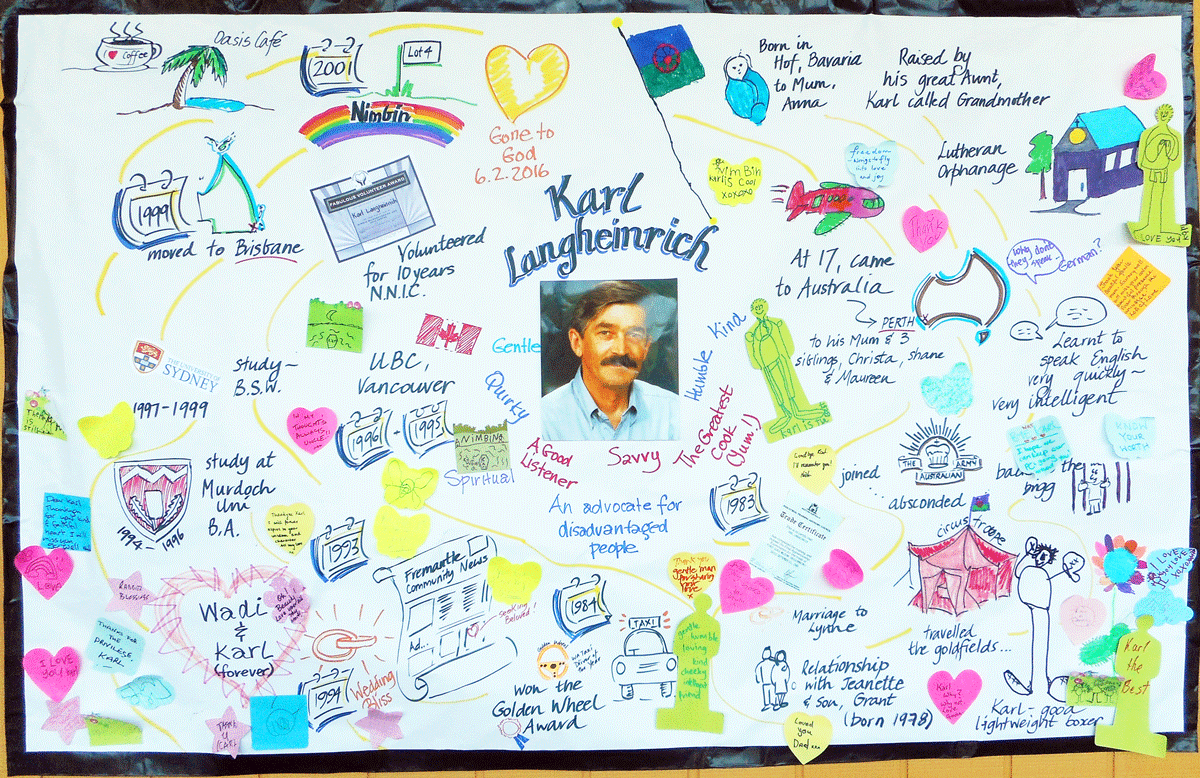
Karl’s love for life lit up the whole sky.
We saw that whole sky in Karl’s smile, his laughter, and his warmth. I believe he emanated gratitude, pure and simple. Against all the odds, God had allowed impoverished, orphaned Karl to have a life. Remarkably, he built a life with me out of the tatters of his chaotic previous lives. Some lucky breaks and his own persistence at midlife deepened his appreciation of that life.
Karl was a star that burned brightly but could not burn forever. He was eccentric, independent, a wanderer, a roamer, and addicted to freedom. And, curiously, he was very attached to his home. Karl had an essential magic, a unique, mysterious quality. Being near Karl made stardust appear on my sleeve. He had an “otherworldly” quality: there was nobody else like Karl in the whole world.
Karl had a strong commitment to justice and empowerment. I called him a “prejudice-free zone”. But he was also highly sensitive to personal examples of prejudice and mistreatment. He related to underdogs in every situation. Once, in Vancouver, when Karl was in his mid-forties, a friend refused to allow him to babysit her 13-year-old son because she saw Karl as unstable, and she suspected that he smoked pot. (He did.) Karl never forgave her for that insult. In another incident, which he also never forgave, Karl was banned from a professional meeting in Perth for identifying the project manger’s elitism and questionable professional ethics and speaking openly about both matters in a project team meeting.
Anne Dunn’s eulogy
At his memorial, Karl also hears my dearest friend, Anne Dunn, honor him in her eulogy:
I’ve loved him for the commitment he made to hang in for the long term. And that Nimbin house has to be the absolute living example of Karl’s long-term commitment, his determination to be in it for the long haul. It didn’t matter how long it took; he would be there. He would make it work. And he would provide a home and a nest for him and for Wendy.
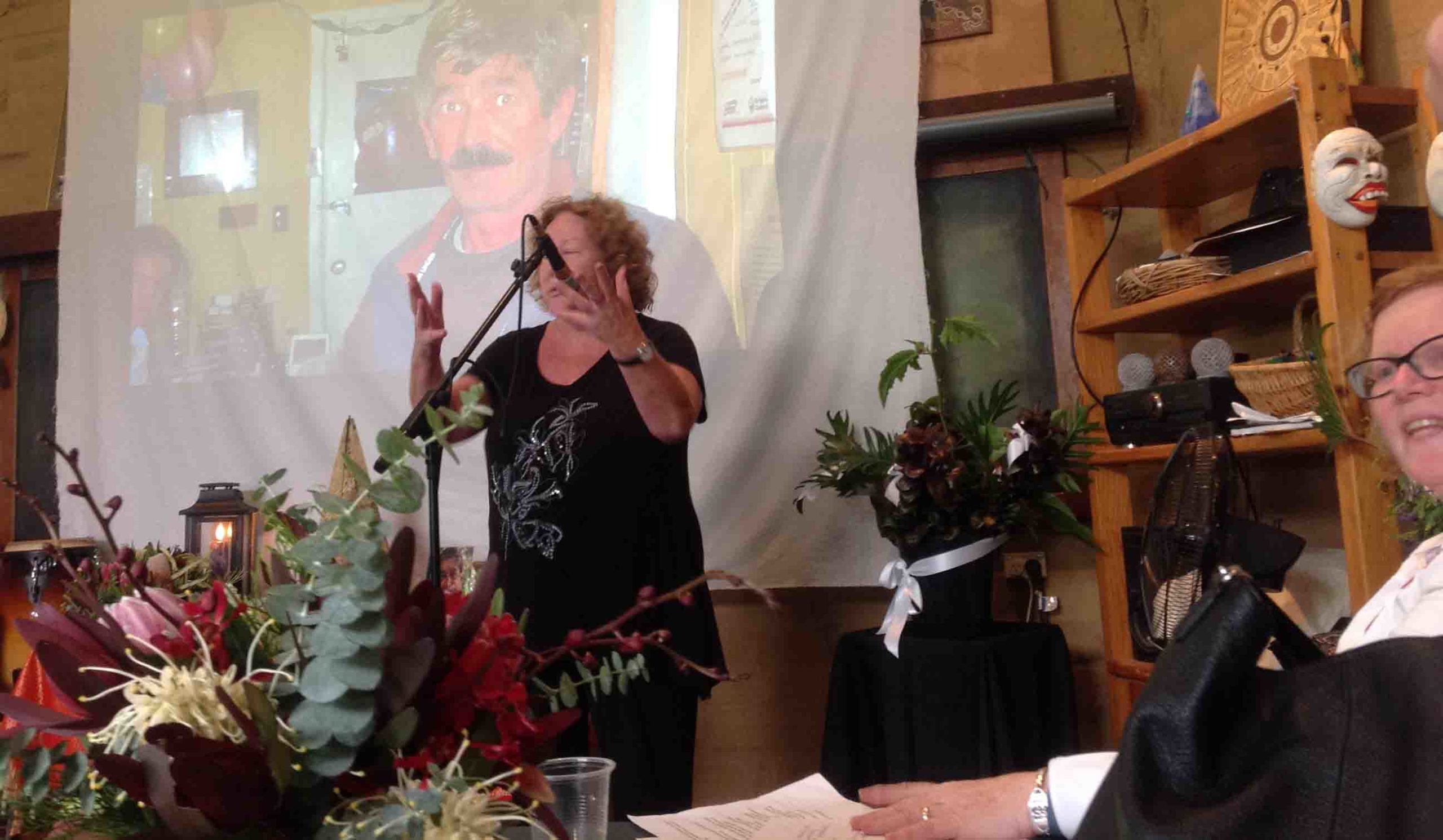
“I JUST LAID MY PROBLEMS AT GOD’S FEET.”
Karl continues to express his apologies for leaving me for many months. Whenever I tell him that I am feeling down, he insists he did not intentionally drive over that cliff.
He says on 2 November 2016:
I hope you do not blame me for this dramatic new life. I did not commit suicide, you know. I just laid my problems at God’s feet. I told God I’d be happy to go early. I did not know if or when this would happen. Please believe me, Wadie — I would never hurt you. I love you so much — with all I have, with all my heart…. You are making it so much easier for both of us by not blaming me for leaving and by reaching out to me and loving me. Because you are in contact with me, I am healed of my sadness….
A terrible wrench
It takes many months for Karl to hear that I have forgiven him for the crash. In early June 2016, he opens up again, pleading with me:
I’m sorry you had to go through this. I didn’t mean to hurt you. It all came as a great shock to me, too. I didn’t even say goodbye to people at the Oasis Café.
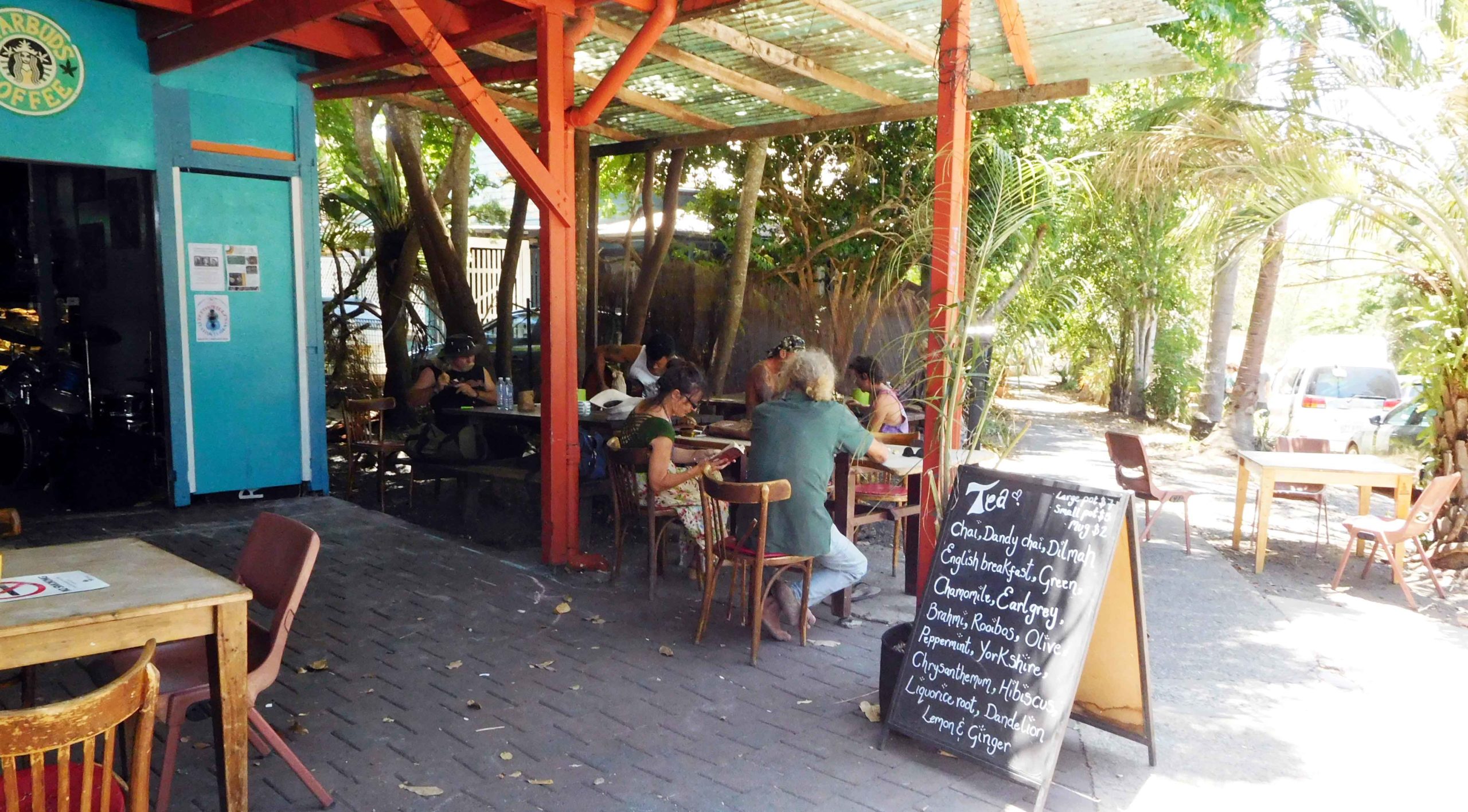
Again, in November 2016, Karl explains how painful it was for him to leave me:
I was in agony. It is a terrible wrench not to be able to be close to someone you love so much!
Those words are a balm to my broken heart.
